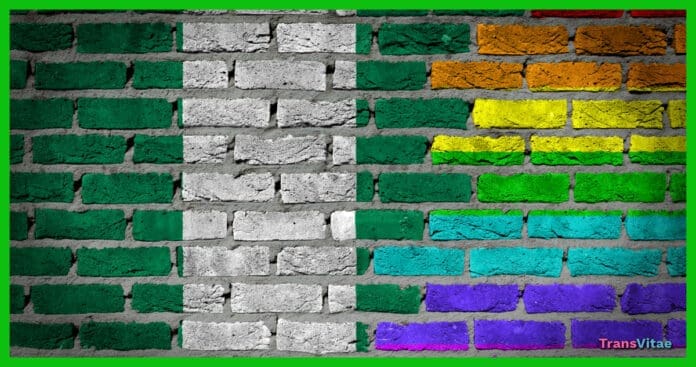By: Adunni Tiwatope
To be transgender in Nigeria is to be both visible and invisible—visible in the violence we face, but invisible in the policies, protections, and public narratives that leave us behind.
It is to wake up each day negotiating your right to exist: in the streets, in hospitals, and in your own home.
When people ask what it’s like to be trans in Nigeria, I never know where to begin. Do I start with the fact that many of us must flee our family homes for safety, often without warning? That healthcare workers laugh at us or deny us treatment when we seek help? That legal documentation reflecting our gender identity is nearly impossible to obtain, trapping us in a cycle of misidentification, ridicule, and risk?
Or should I begin with the chosen families we form and the quiet revolution of care and community we build for each other every day?
My Name Is Adunni Tiwatope
I am a trans woman, a community organizer, and the founder of FEMMEHIVEsisters Forum, a trans-led initiative centering trans women’s safety, legal rights, and healing in Nigeria.
On August 26th, 2024, just days before my birthday, I was thrown out of my home because of my identity. I had nowhere to go. I wandered with a suitcase and an aching heart, trying to stay safe in a city that punishes visibility. For weeks, I was unhoused. And yet, even in the darkest moments, I held onto one truth: my life is still valuable. My story still matters.
This experience was not an exception; it’s a pattern. A systematic erasure that Nigerian trans women endure, especially when we dare to live our truth. We are punished for being seen and abandoned when we most need care.
Resistance Is Community
Through FEMMEHIVEsisters, a trans-led initiative founded in 2023 in Nigeria, focused on safety, legal empowerment, and collective healing of transgender women, born out of the lived experience of our necessity—and through our storytelling and research platform, Area Scatter Africa Institute, a gender and social inclusion research institute founded in 2021 that centers West African trans and gender-diverse lives and knowledge systems—we have achieved real impact.
We have successfully supported over 20 trans women in legally changing their names and gender markers—a complex, expensive, and emotionally taxing process involving court affidavits, newspaper publications, and endless queues at government offices. But the moment someone holds an ID that affirms their identity? That moment is everything.
With the support of my community, we also launched the first-ever nationwide survey on the quality of life of trans and gender-diverse people across Nigeria’s 36 states. The data, built from the ground up, confirms what we’ve always known: we are brilliant, resourceful, resilient, and deeply underserved.
Beyond Survival
Despite the barriers, we do more than survive. We organize. We heal. We document. We advocate. We care for each other. We build. We fight for a livable future.
But we cannot do it alone.
To international allies, global platforms, and those with the means to support us:
• Continue to fund trans-led work. Let us lead the solutions.
• Continue to amplify our voices with dignity, consent, and reparation.
• Continue to push for policies that protect and affirm our lives—in healthcare, housing, education, and documentation access.
We need more than survival; we need liberation. A world where we do not have to choose between safety and authenticity. Between hunger and honesty. Between visibility and violence. We are here. We are organizing. We are living. And we are asking you to continue to stand with us, not just in mourning, but in movement.
Author Bio
Adunni Tiwatope is a Nigerian trans woman, community organizer, researcher, and founder of FEMMEHIVE Sisters Forum, Adunni Tiwatope Trans Support, and Area Scatter Africa Institute. Her work centers on trans safety, legal documentation access, and storytelling as resistance. Adunni has organized the first nationwide survey on trans life in Nigeria and led efforts that helped dozens of trans women navigate the legal name and gender marker change process. She is passionate about building healing-centered, trans-led movements that document trans realities in data and demand justice as reparation.
Guest Post Disclaimer: The views and opinions expressed in this guest post are those of the author and do not necessarily reflect the official policy or position of TransVitae.com. We strive to provide a platform for diverse voices and experiences within the transgender community, and we welcome a range of perspectives. However, the responsibility for the content, accuracy, and opinions shared in this article lies solely with the guest author.


